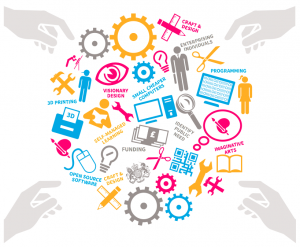 News
News
Only Connect
I’ll be chairing the morning session of Culture24’s conference, Connecting Collections (link here Connecting Collections) at the National Maritime Museum on 29th June. This should be a really stimulating day, as it goes beyond talking about digital tactics, to exploring how best to connect learners with cultural collections and stories. I’ve been chewing on this question since first helping to set up Tate’s website in 1995, when I argued that its structure should reflect needs of audiences (and especially curious, learning audiences) rather than our internal silos. I then worked on digital access to the British Library’s millions of collection items, including the Sound Archive. The British Library is currently doing inspiring work with young people exploring digital rights and democracy, as part of the Magna Carta celebrations. Since setting up Flow in 2006, I’ve worked on a large number of projects exploring ways to engage learners with cultural collections, using digital means, working for many national and regional museums, ACE, English Heritage, the BFI, HLF and more.
More recently, Flow UK has been working on a few projects that continue chewing away at this issue. For example, we conducted the digital strand of the ACE-funded Stronger Together project. This explored how schools and museums could move beyond a ‘vendor’ model of education delivery towards more rewarding co-development of initiatives with richer outcomes for all participants. For the digital strand, we looked at the role digital technologies are playing in museum learning around the world. We then explored how this practice can be incorporated to strengthen partnerships between schools and museums. You can read our report here Stronger Together Digital research
Also we’ve worked with Artswork South East on their initiative, Extending Digital Practice. This included three projects in Eastbourne, Margate and Oxford, drawing together museums/galleries, schools and digital practitioners or agencies to deliver innovative work with young people. As part of our evaluation of these projects, we carried out some background research to:
- Define what innovative digital practice in learning looks like now in terms of principles and behaviours
- Explain what initiatives and practice exists already, especially in Cultural Education partnerships, and in the South East
- Identify any gaps or weaknesses, which could be supported by sharing learning.
You can download the background report on this link
There’s also a handy infographic (link here) which we commissioned recently condensing some of its key concepts.
A quick update: Here are lots of links to good projects and research, from a Digital Learning Network chat about connecting learners with cultural collections.


